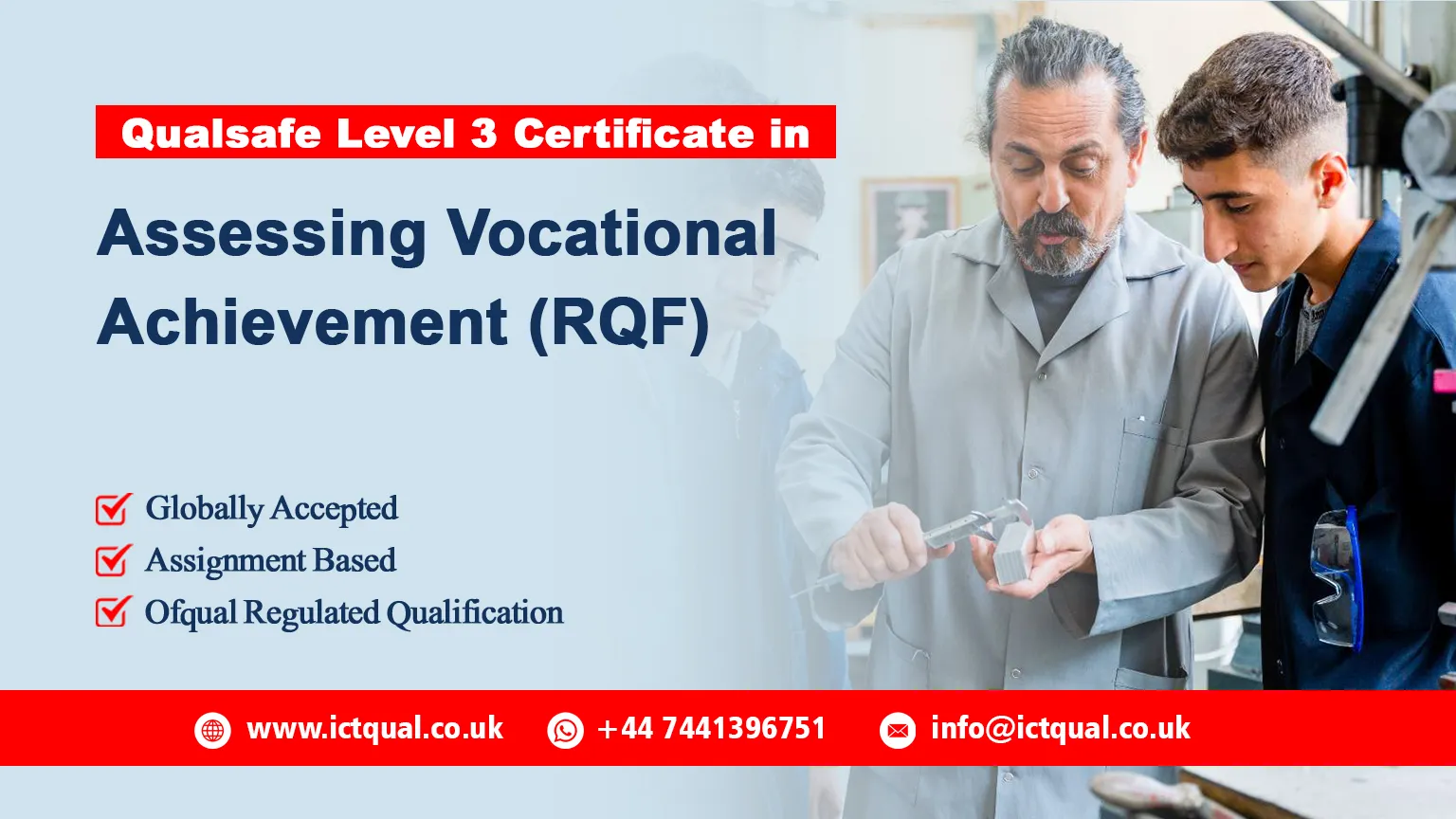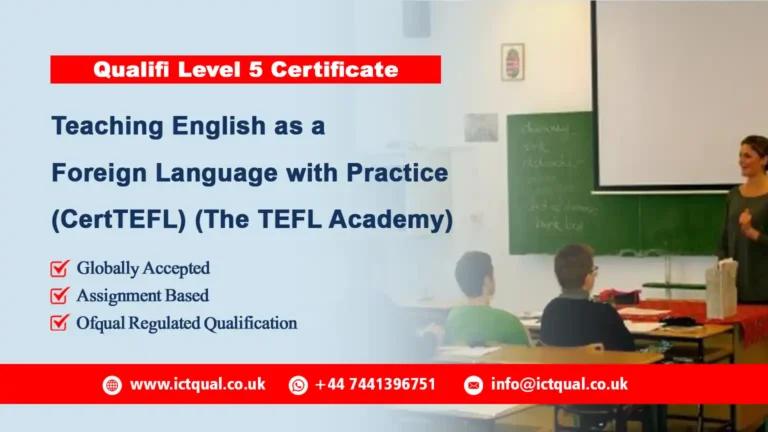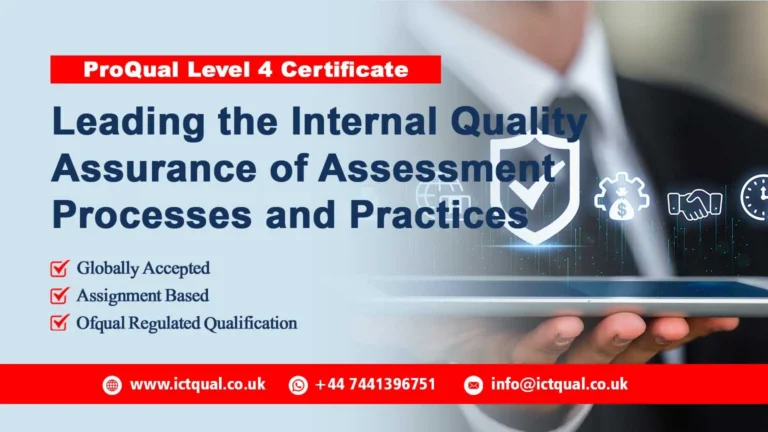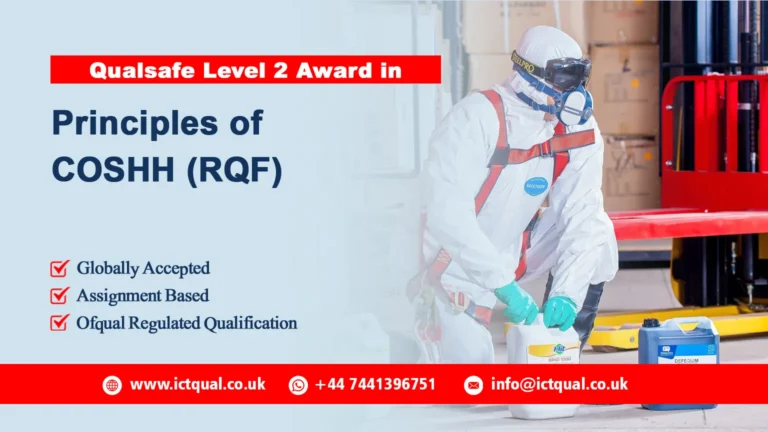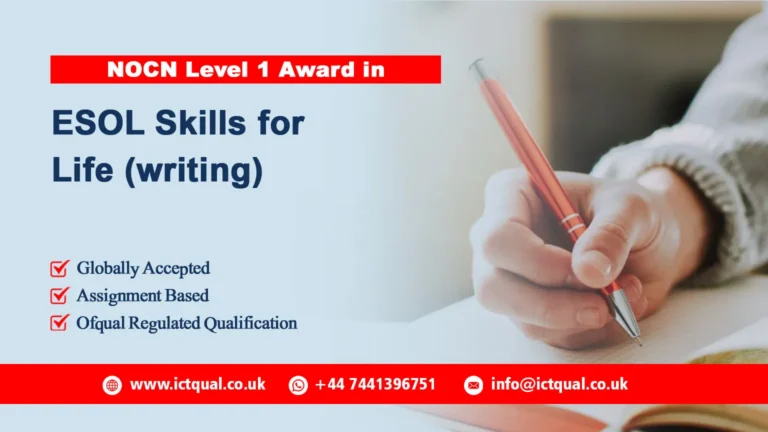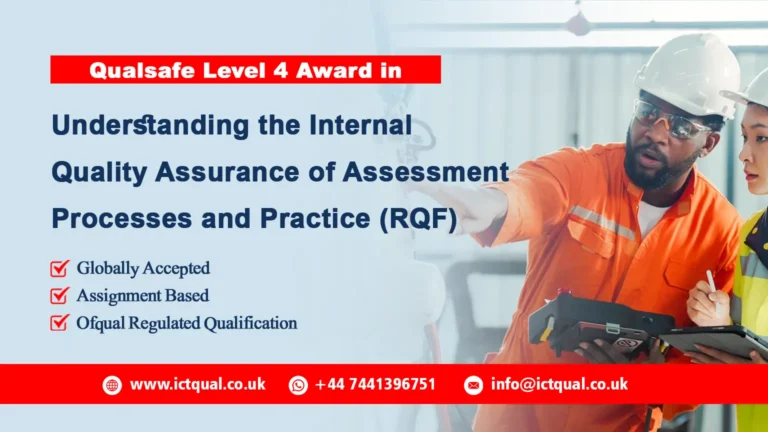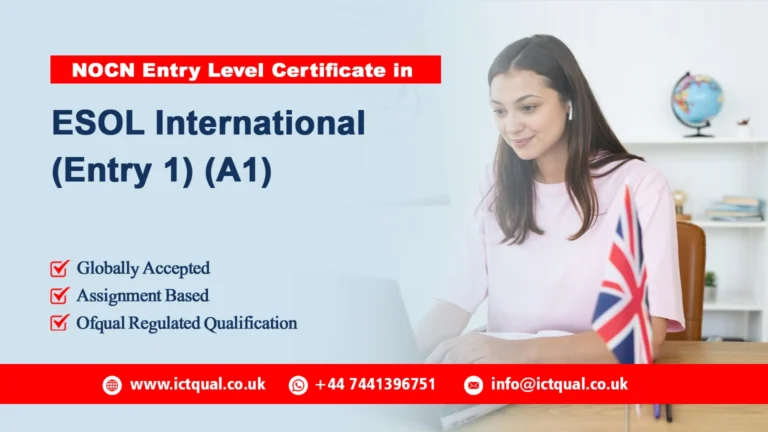The Qualsafe Level 3 Certificate in Assessing Vocational Achievement (RQF) is a valuable qualification for individuals who are interested in assessing learners in various work environments and educational settings. This certification is ideal for those seeking to become competent assessors in vocational qualifications, apprenticeships, and other forms of occupational training. It is accredited under the Regulated Qualifications Framework (RQF), ensuring it meets national standards and is recognized by employers across industries.
The Level 3 Certificate in Assessing Vocational Achievement (RQF) is designed to equip individuals with the skills and knowledge required to assess vocational competencies in both real-world and simulated work environments. It covers all aspects of assessment, including planning, conducting, and reviewing assessments of learners’ performance and knowledge. This qualification is essential for those who wish to take on roles such as internal verifiers, workplace assessors, and trainers responsible for evaluating vocational skills.
Earning the Qualsafe Level 3 Certificate in Assessing Vocational Achievement (RQF) offers numerous benefits for both individuals and organizations. For assessors, this qualification enhances professional credibility and opens up career advancement opportunities. Assessors with this certification are equipped to provide high-quality evaluations, which contribute to the overall improvement of vocational training programs.
To achieve the Qualsafe Level 3 Certificate in Assessing Vocational Achievement (RQF), learners must complete both theoretical and practical components. The qualification is assessed through a combination of written assignments, practical assessments, and observations of real-life or simulated assessments. Learners are required to demonstrate their ability to plan, deliver, and review assessments effectively, as well as provide feedback to learners in a constructive manner.
The Qualsafe Level 3 Certificate in Assessing Vocational Achievement (RQF) is a highly respected qualification that provides individuals with the skills and knowledge needed to become proficient vocational assessors. It is a comprehensive certification that covers all aspects of the assessment process, from planning and delivering assessments to providing feedback and ensuring learners meet the required standards. For those seeking to advance their careers in education, training, or workforce development, this qualification is an excellent choice that opens up a range of professional opportunities.
The Qualsafe Level 3 Certificate in Assessing Vocational Achievement (RQF) is a comprehensive course designed to equip individuals with the skills and knowledge required to assess learners in vocational settings. This qualification is ideal for those who wish to become certified assessors, responsible for evaluating vocational competence in both real-world and simulated work environments.
The course is assessed through a combination of written assignments, practical demonstrations, and observations of assessments carried out in the workplace or in simulated environments. Candidates must demonstrate their ability to plan and conduct assessments, provide constructive feedback, and review learners’ progress effectively.
The Qualsafe Level 3 Award in Assessing Vocationally Related Achievement (RQF) has 2 units that Trainee assessors are required to complete in order to achieve the qualification. Qualification unit 1 has 24 GLH, Credit value of 3, Qualification unit 2 has 30 GLH and Credit value of 6, Qualification unit 3 has 30 GLH and Credit value of 6.
Qualification Unit 1
| Sr# | Unit Title |
|---|---|
| 1 | Understand the principles and requirements of assessment |
| 2 | Understand different types of assessment method |
| 3 | Understand how to plan assessment |
| 4 | Understand how to involve learners and others in assessment |
| 5 | Understand how to make assessment decisions |
| 6 | Understand quality assurance of the assessment process |
| 7 | Understand how to manage information relating to assessment |
| 8 | Understand the legal and good practice requirements in relation to assessment |
Qualification Unit 2
| Sr# | Unit Title |
|---|---|
| 1 | Be able to plan the assessment of occupational competence |
| 2 | Be able to carry out assessments of vocational skills, knowledge and understanding |
| 3 | Be able to provide required information following the assessment of vocational skills, knowledge and understanding |
| 4 | Be able to maintain legal and good practice requirements when assessing vocational skills, knowledge and understanding |
This course is designed for:
- Aspiring Assessors: Individuals looking to start a career in assessment and evaluation within vocational settings, such as training organizations, colleges, and workplaces.
- Current Assessors: Those already working as assessors who wish to formalize their skills and knowledge, enhance their professional credibility, and meet industry standards.
- Vocational Trainers: Professionals responsible for delivering training programs who also need to assess learners’ competencies as part of their role.
- Internal Verifiers: Individuals involved in quality assurance processes who require the skills to evaluate and verify the assessments carried out by others.
- Industry Professionals: Employees with significant experience in their vocational area who want to leverage their expertise by assessing the skills and knowledge of others in their field.
- Educational Practitioners: Teachers or lecturers in vocational subjects who want to expand their qualifications to include assessment capabilities.
- Quality Assurance Managers: Professionals overseeing training and assessment practices who need a formal qualification to ensure compliance with standards and regulations
Here are the outcomes for each of the listed study unit:
- Understand the Principles of Assessment: Demonstrate a comprehensive understanding of the fundamental principles, processes, and practices of assessment, including the various types of assessment methods and how they apply to vocational settings.
- Plan and Prepare Assessments: Develop the skills to effectively plan assessments that are tailored to learners’ needs, vocational standards, and regulatory requirements. This includes creating assessment plans that ensure fair, valid, and reliable evaluations.
- Conduct and Manage Assessments: Confidently carry out assessments in both real-world and simulated environments, using appropriate methods to evaluate learners’ skills, knowledge, and occupational competence.
- Provide Constructive Feedback: Learn how to provide effective and constructive feedback to learners, guiding them on their performance and helping them improve their skills and knowledge.
- Assess Competence in the Workplace: Gain the ability to assess learners’ occupational competence in their work environment, ensuring their performance aligns with industry standards and vocational qualifications.
- Evaluate and Review Assessment Processes: Critically review and evaluate the effectiveness of assessment processes, identifying areas for improvement and ensuring that assessments are consistently fair, reliable, and aligned with best practices.
- Adhere to Legal and Ethical Requirements: Demonstrate a thorough understanding of the legal and regulatory frameworks that govern assessment in vocational settings, including safeguarding, equality, and data protection.
- Support Continuous Professional Development (CPD): Understand the importance of continuous professional development in the role of an assessor and apply best practices for maintaining and updating personal and professional knowledge.
Register Now
Qualification Unit 3
| Sr# | Unit Title |
|---|---|
| 1 | Be able to prepare assessments of vocational skills, knowledge and understanding |
| 2 | Be able to carry out assessments of vocational skills, knowledge and understanding |
| 3 | Be able to provide required information following the assessment of vocational skills, knowledge and understanding |
| 4 | Be able to maintain legal and good practice requirements when assessing vocational skills, knowledge and understanding |

